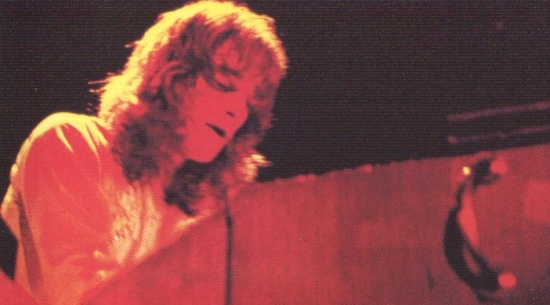Kaye, Tony (musician)
 Photo: Jorge Butehrein
Photo: Jorge Butehrein
Being the last guy to leave a band before they settle into their consensus “classic” lineup is a rough lot for any musician. Just ask John Rutsey (RIP) or Pete Best. This was also the case with one Tony Kaye (the English musician, not the American History X guy), the founding keyboardist of a little prog rock band from London called Yes.
Kaye, who turns 76 today, recorded three albums with Yes, including my favourite of their records, 1971's The Yes Album. Then he got shitcanned for being reluctant to play any more of these newfangled synthesizers. Kaye's pared-down keyboard sound is part of the reason I enjoy those early Yes albums so much. Not that I dislike the albums Yes made with prog rock enfant terrible/literal wizard Rick Wakeman, far from it. But Kaye was not nearly as flashy as his eventual replacement, and Yes was all about pomp and flash as the 70s soldiered on. Kaye preferred a relatively small set-up of piano and Hammond organ, with some splashes of Moog for colour; for comparison, here is one of the Becaped One's massive rigs. Creative differences, you see.
Kaye was a brilliant rhythm player, and could make his Hammond sound the size of a mountain. He is the groove's bedrock on S-tier prog bangers like “Yours Is No Disgrace.” The only knock against him, so far as I can tell, was that he played for texture and mood in a genre that embraced individual excess and flair, the same flair that led to Yes torpedoing their own god run with the album that typified progressive rock's reach exceeding its grasp (to be fair, this was not Wakeman's fault, but lead singer Jon Anderson's, but that's another story for another time; the capes were mostly just bad optics).
Kaye bounced around in the 70s, recording with a couple of prog supergroups, including Flash (co-founded by another ex-Yes member, Peter Banks) and Badger (a prog band with a strong boogie-rock streak whose first album, 1973's One Live Badger, is a genuine diamond in the rough; check out the track “River”). He'd then join Badfinger, of all bands, before returning to Yes just as they were becoming bona fide pop stars (by this point, he had developed a taste for those aforementioned newfangled synthesizers) and eventually joining them in the Rock and Roll Hall of Fame in 2017. He's still busy, playing in a ton of supergroups I've never heard of, which is par for the course for prog lifers. Still, not a bad career arc, all in all, for someone who was fired for not being prog enough.